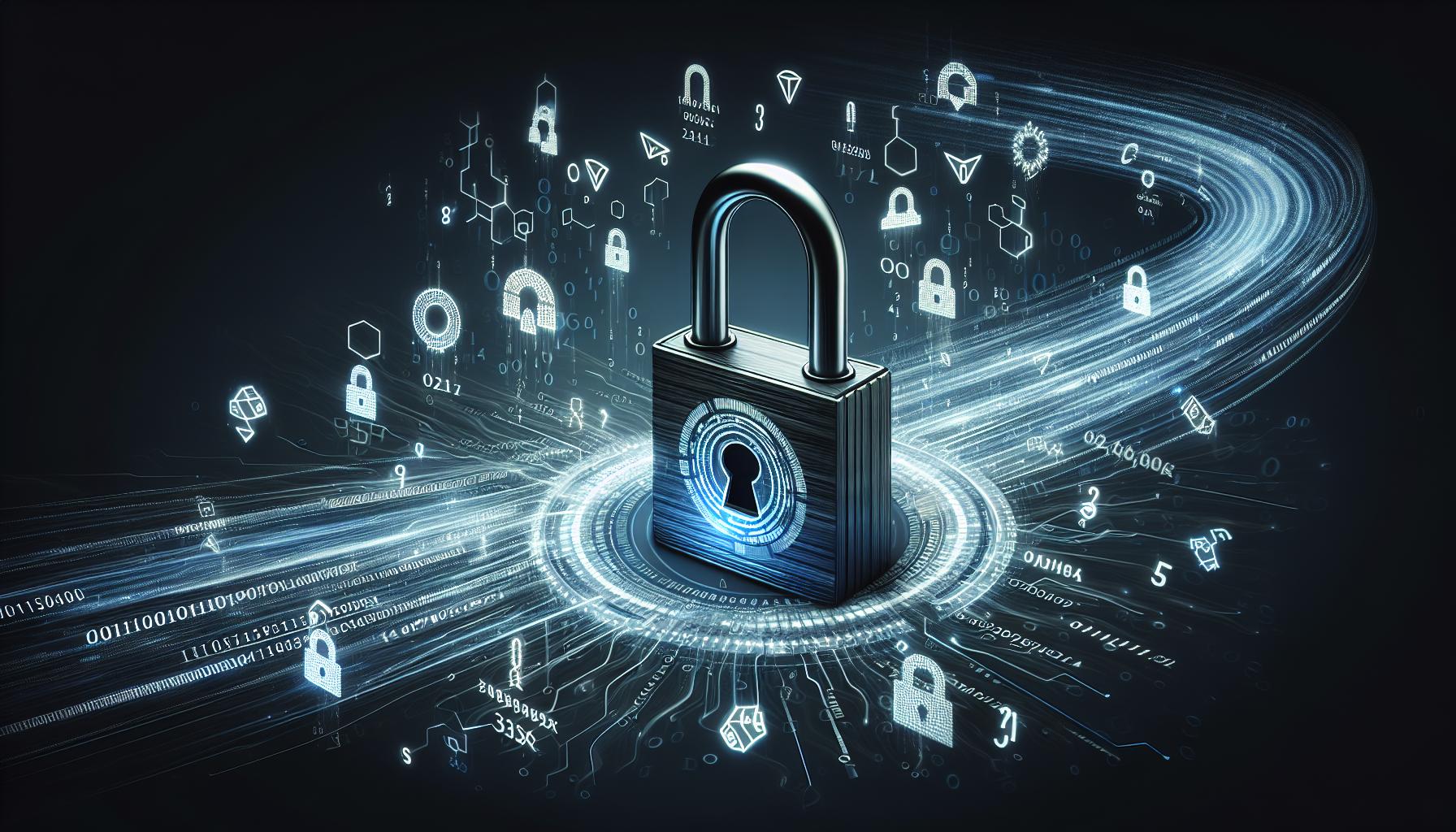If you’ve ever wondered about the intricate network that powers secure communication over the internet, the Gulf Stream Protocol stands at the forefront. Developed to ensure data integrity and confidentiality, this protocol plays a vital role in safeguarding digital information. By establishing a secure channel for data transmission, Gulf Stream Protocol offers a reliable framework for online interactions.
In a world where cyber threats loom large, understanding the mechanisms behind the Gulf Stream Protocol can provide valuable insights into maintaining secure online connections. Whether you’re a tech enthusiast or simply curious about digital security, delving into the workings of this protocol can shed light on the complex yet essential aspects of modern-day communication.
Overview of Gulf Stream Protocol
In the realm of secure online communication, the Gulf Stream Protocol plays a vital role in ensuring the integrity and confidentiality of data as it traverses the internet. Understanding the mechanisms of this protocol is crucial for anyone keen on digital security or modern communication, given the ever-present cyber threats in today’s online landscape.
When it comes to safeguarding your online interactions and transactions, the Gulf Stream Protocol serves as a reliable framework, allowing you to navigate the competitive digital world with confidence. By leveraging the features of this protocol, you can enhance the security of your communication channels and protect your sensitive information from potential cyber-attacks.
In the sea of evolving technologies, the Gulf Stream Protocol stands out as a trailblazer in ensuring the secure transmission of data across networks. Its efficient encryption methods and robust authentication mechanisms make it a top-notch choice for individuals and businesses looking to fortify their online presence.
By deploying the Gulf Stream Protocol in your digital interactions, you can supercharge the protection of your sensitive data and elevate your overall cybersecurity posture. With its scalable features and efficient transaction processing, this protocol offers a treasure trove of benefits for those seeking reliable and secure communication channels.
Embracing the Gulf Stream Protocol in your online activities is essential for safeguarding your data, navigating the complexities of the digital world, and staying ahead in today’s rapidly evolving online landscape.
History of Gulf Stream Protocol

Diving into the past of the Gulf Stream Protocol, you’ll find a protocol that has been pivotal in securing online communications for years. Gulf Stream Protocol has a rich history of ensuring data integrity and confidentiality in digital interactions. It has played a crucial role in enhancing security measures against cyber threats, making it a preferred choice for individuals and businesses alike. Embracing the Gulf Stream Protocol has been essential for safeguarding sensitive information and adapting to the rapidly evolving digital landscape. The protocol’s encryption methods and authentication mechanisms have stood the test of time, offering a reliable framework for secure online transactions.
As you explore the history of the Gulf Stream Protocol, you’ll uncover its journey as a trailblazer in the realm of online security. From its inception to its evolution into a top-notch choice for fortifying online presence, the Gulf Stream Protocol has revolutionized the way data is protected in today’s competitive digital world. In light of the protocol’s efficiency and effectiveness, many have turned to it to navigate the complexities of the digital realm and safeguard their online activities.
The Gulf Stream Protocol’s history is a treasure trove of innovations, ensuring that data transmission remains secure and reliable in the ever-evolving digital landscape. By leveraging the features and benefits of the Gulf Stream Protocol, individuals and businesses can supercharge their online security measures and stay ahead in the realm of cybersecurity. Whether you’re delving into decentralized finance, engaging in decentralized apps development, or participating in the crypto market, the Gulf Stream Protocol continues to play a vital role in ensuring the integrity and confidentiality of online transactions.
Features of Gulf Stream Protocol
When considering the Gulf Stream Protocol, it’s essential to delve into its key features that contribute to its reliability and effectiveness in securing online communications. Let’s explore some of the notable features that make the Gulf Stream Protocol a robust framework for ensuring data integrity and confidentiality:
- Advanced Encryption Methods:
- The Gulf Stream Protocol incorporates advanced encryption techniques to secure data transmission.
- Each data packet is encrypted using a robust algorithm, ensuring that information remains confidential and secure during transit.
- Authentication Mechanisms:
- To enhance security measures, the Gulf Stream Protocol implements stringent authentication mechanisms.
- By verifying the identity of parties involved in data exchange, the protocol mitigates the risk of unauthorized access and ensures data authenticity.
- Data Integrity Assurance:
- One of the core features of the Gulf Stream Protocol is its focus on maintaining data integrity throughout the communication process.
- By implementing checksums and validation mechanisms, the protocol verifies data accuracy and detects any tampering attempts.
- Resilience Against Cyber Threats:
- The Gulf Stream Protocol offers robust resistance against various cyber threats, safeguarding online communications from potential attacks.
- With built-in security measures, the protocol helps in preventing eavesdropping, data manipulation, and unauthorized access.
- Efficient Data Transmission:
- Leveraging optimized data transmission techniques, the Gulf Stream Protocol ensures swift and efficient exchange of information.
- By optimizing packet handling and transmission protocols, the protocol enhances overall communication speed and reliability.
- Scalability and Flexibility:
- The Gulf Stream Protocol is designed to scale seamlessly to accommodate varying communication needs.
- Whether for individual users or large enterprises, the protocol offers flexibility in adapting to different communication requirements effectively.
By embracing the Gulf Stream Protocol with its advanced encryption, authentication mechanisms, and focus on data integrity, you can establish a secure framework for online transactions, communications, and data exchange, contributing to a safer digital environment for individuals and businesses alike.
Benefits of Gulf Stream Protocol
Enhancing Security:
By employing the Gulf Stream Protocol, you ensure advanced security measures to safeguard your online transactions and communications, contributing to a safer digital environment.
Ensuring Data Integrity:
Utilizing the protocol guarantees data integrity and confidentiality, crucial for maintaining the trust of individuals and businesses in online interactions.
Efficient Data Transmission:
With the Gulf Stream Protocol, you benefit from efficient data transmission, enabling swift and secure exchange of information in the digital realm.
Resilience Against Cyber Threats:
By incorporating the protocol’s stringent authentication mechanisms, you fortify your defenses against cyber threats, enhancing your overall security posture.
Scalability:
The Gulf Stream Protocol offers scalability features that accommodate the evolving needs of individuals and businesses in an ever-changing digital landscape.
By leveraging the Gulf Stream Protocol, you elevate your online security, ensuring the integrity and confidentiality of your data while optimizing the efficiency of your digital transactions.
Challenges of Gulf Stream Protocol
When utilizing the Gulf Stream Protocol for secure online transactions and communications, there are certain challenges that you may encounter. It’s important to be aware of these obstacles to effectively navigate the digital landscape. Here are the key challenges associated with the Gulf Stream Protocol:
Data Integrity Maintenance
One of the primary challenges of the Gulf Stream Protocol is ensuring the consistent maintenance of data integrity. While the protocol offers advanced security features, ensuring that data remains accurate and unaltered during transmission can be a complex task. You need to implement robust mechanisms to verify the integrity of data exchanged using the protocol.
Compatibility Issues
Another challenge that you may face when implementing the Gulf Stream Protocol is compatibility issues with existing systems and applications. Integrating the protocol into diverse technological environments without disrupting existing operations can require careful planning and execution. You’ll need to ensure seamless compatibility to leverage the benefits of the protocol effectively.
Scalability Concerns
Scalability is a significant challenge that users may encounter when deploying the Gulf Stream Protocol, especially in high-traffic scenarios. As transaction volumes increase, maintaining optimal performance and throughput can be demanding. Addressing scalability concerns by optimizing resource allocation and network configuration is crucial for ensuring a smooth user experience.
Resource Management
Effective resource management is essential for maximizing the potential of the Gulf Stream Protocol. Managing encryption keys, authentication tokens, and other resources securely can present a challenge, particularly in large-scale deployments. You need to implement robust resource management strategies to safeguard sensitive information and streamline protocol operations.
Compliance and Regulation
Compliance with data protection regulations and industry standards poses a challenge when implementing the Gulf Stream Protocol. Ensuring that your use of the protocol aligns with legal requirements and industry best practices demands careful attention to detail. You must stay informed about evolving regulations and adjust your protocol implementation accordingly.
By being aware of these challenges and proactively addressing them, you can optimize your use of the Gulf Stream Protocol and enhance the security and efficiency of your online transactions and communications. Understanding the nuances of these challenges is key to overcoming them successfully in a competitive digital world.
Future of Gulf Stream Protocol
In the rapidly evolving landscape of online security, the future of the Gulf Stream Protocol holds immense promise and potential. By leveraging innovative encryption methods, robust authentication mechanisms, and enhanced security features, the protocol is set to play a pivotal role in ensuring the integrity, confidentiality, and resilience of data in digital transactions and communications.
As you navigate the ever-changing cyber threats and challenges in the digital realm, the Gulf Stream Protocol is poised to address these obstacles effectively. By embracing the protocol’s scalability features and optimizing resource management, you can enhance the security of your online interactions and transactions. Additionally, compliance with regulations will be streamlined, offering you a secure environment for conducting your activities in the competitive digital world.
The Gulf Stream Protocol’s role in decentralized finance and blockchain technology is significant. With its advanced security measures and efficient data processing capabilities, the protocol provides a solid foundation for decentralized apps development and the execution of smart contracts on platforms like Solana. Furthermore, its integration with Tower BFT Consensus and Solana Ledger Replicators ensures high transaction throughput and low transaction fees, making it a preferred choice for users engaged in the crypto market on Solana.
Looking ahead, the Gulf Stream Protocol’s seamless integration with Solana’s cluster technology and pipelining transaction process will further elevate its efficiency and usability. As you explore the possibilities of utilizing non-fungible tokens and staking rewards within the Solana ecosystem, the protocol’s efficiency and reliability will stand out, offering you a treasure trove of opportunities to engage with Web3 projects and community events on Solana.
By embracing the Gulf Stream Protocol and its future advancements, you can supercharge your online security measures and revolutionize your digital interactions in a decentralized and secure environment.
Conclusion
You’ve now delved into the intricacies of the Gulf Stream Protocol, from its historical roots to its cutting-edge security features. The protocol’s future shines bright, promising improved data integrity, confidentiality, and resilience in digital transactions. Its seamless integration with Solana’s ecosystem opens doors to enhanced security and opportunities in decentralized finance and blockchain technology. As you navigate the ever-evolving digital landscape, keep an eye on the Gulf Stream Protocol for its potential to revolutionize online security and redefine how we engage with digital assets.
Frequently Asked Questions
What is the Gulf Stream Protocol about?
The Gulf Stream Protocol is a security protocol that offers advanced security features, encryption methods, and authentication mechanisms for online security.
What are the benefits of the Gulf Stream Protocol?
The Gulf Stream Protocol benefits online security by enhancing data integrity, confidentiality, and resilience in digital transactions. It also emphasizes scalability, resource optimization, and regulatory compliance.
How does the Gulf Stream Protocol relate to decentralized finance and blockchain technology?
The Gulf Stream Protocol integrates with technologies in the Solana ecosystem, improving security in handling non-fungible tokens and staking rewards, providing users with enhanced security and opportunities.

